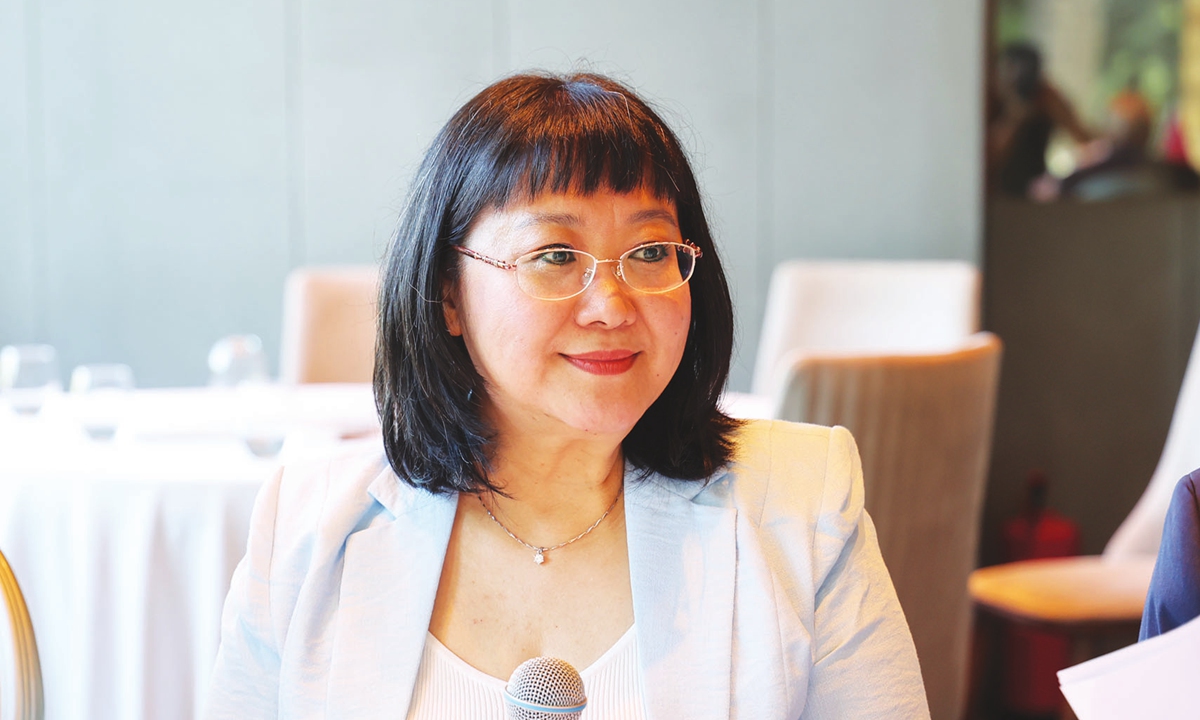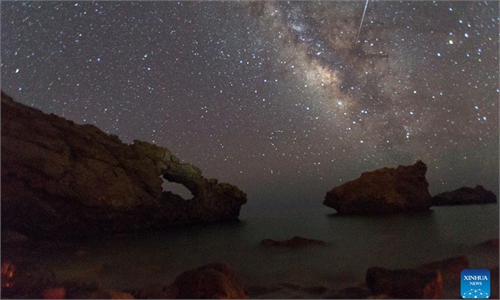Theater workers contribute to China-Greece exchanges with hearts and efforts
A tale of three generations

Luo Tong Photo: Courtesy of Luo Tong
In Chinese, there is a saying that compares a great work of art to an eternal flame that is passed down from generation to generation. The tale of the three generations of the Luo family and their contributions to cultural exchanges between China and Greece perfectly embodies this saying."It is natural for me to choose to study and work in Greece as is the family tradition," said Luo Tong, daughter of Luo Jinlin, a renowned 86-year-old director who has helped produce Chinese versions of ancient Greek classics such as Oedipus the King and Medea, told the Global Times.
"It is so meaningful as a bridge between Chinese and Greece cultures," noted Luo Tong.
She has lived in Greece for more than thirty years, during which she devoted her energies to spreading Chinese culture in Greece, including prompting the Language School at the University of Athens to offer Chinese language courses and founding the InterChina Cultural Center to teach Chinese and traditional Chinese arts.
Drama is an important cultural heritage for humankind as Western drama was born in ancient Greece. The long-standing arts of traditional Chinese opera and ancient Greek drama have many things in common, she said, such as sharing ritualistic origins and similar costumes and adornment traditions during performances.
"These similarities and differences are at the heart of the value of exchanges and mutual learning between the two civilizations," added she.
Pioneers in exchanges
Luo Niansheng, the first Chinese student to attend the American School of Classical Studies in Athens in 1933, was a major force in introducing ancient Greek theater and literature such as Aesop's Fables and the works of Aeschylus to China. Influenced by his father's work, Luo Jinlin began to stage Greek dramas and comedies in China.
In 1989, he pioneered the use of Chinese traditional opera to interpret ancient Greek tragedies. Since then, he has dedicated himself to this field and gained fame both domestically and internationally. Some of his notable works include Medea performed in Hebei Bangzi Opera (a gem among traditional Chinese operatic styles from North China's Hebei Province) and Oresteia in Pingju Opera (one of the five major Chinese operas originating from North China).
It should come as no surprise that growing up in this family, Luo Tong, would also take a great interest in Greece and later follow in the footsteps of her grandfather to study there.
"She chose not to return to China after completing her studies," Luo Jinlin said.
He noted that this troubled him at first, but he later came to understand the decision after she had made.
"She is doing pretty much what her grandfather did - introducing traditional Chinese opera and culture to Greece."

Parthenon on the Acropolis in Athens, Greece Photo: IC
Attempts to bridge two culturesIn her junior year, Luo Tong decided to study in Greece.
"My grandfather and father had made great efforts to bring Greek culture to China. But Chinese culture has not been adequately promoted in Greece, especially in terms of grassroots exchanges. I thought I should bring it to Greece," she recalled.
Therefore, after her graduation in Greece, she stayed on and worked as a teacher at the University of Athens. In 1992, thanks to her efforts, the language school at the university began offering Chinese language courses.
In 2001, Luo Tong the cultural expert founded the InterChina Cultural Center, which initially focused on teaching the Chinese language but gradually expanded into areas like kung fu (Chinese martial arts), calligraphy, painting and other forms of performances. This center, the first of its kind in Greece, has become a well-known institution in the field.
Upon returning to China in 2018, Luo Tong started her teaching career at the Shanghai Theatre Academy and gave lectures to some other universities.
In addition to teaching Greek culture and drama, Luo Tong has also been dedicated to promoting the development of Greek drama performances in China. In 2018, her team invited a Greek director, along with his team, including music designers, set designers and physical trainers, to stage a Greek tragedy with Chinese actors at the Shanghai Dramatic Arts Centre.
In 2019, at the National Theatre of China, Luo Tong invited both Greek and Chinese actors, directors and production teams to perform bilingually. While bilingual performances were not novel in China at the time, featuring both Chinese and Greek languages on stage was a new and a very special attempt.
During rehearsals, she noted obstacles in certain Greek words being translated while on stage, prompting her current work on retranslating classic Greek literary works, as some translations are slightly outdated.
"Times change and languages evolve, so it's essential to retranslate these works and inject 'fresh blood' into them in the new era. Additionally, there have been new developments in the study of ancient Greek drama in the last decade, and these new findings should also be used in interpreting ancient Greek drama," she said.
One of Luo Tong's goals is to get more ordinary Chinese people to be interested in and passionate about Greek drama through popularization. She believes that Greek dramas are still somewhat elitist in China and haven't reached a broader audience.
She has made various popularization attempts, such as organizing script readings that encourage the participation of ordinary people. Through her analyses and explanations, she found that the profound philosophical aspects of Greek tragedies are indeed accessible to ordinary people even with little to no prior exposure to Greek dramas.
"Cultural bridges need piers. I have built a bridge pier in Athens, where my cultural center promotes Chinese culture. Now, in Beijing, I should establish another pier to systematically, scientifically, and widely promote Greek culture. If these two piers are strong enough, more people will come across the bridge we've built," Luo Tong said.




